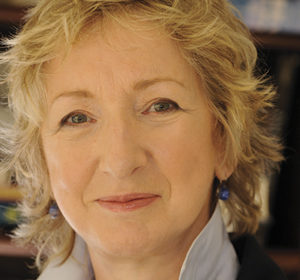Does the diaspora matter?
That was the key issue of discussion at the U.S.-Ireland Forum. The first ever conference on the Irish diaspora was held in New York City in November. It drew upwards of 1,000 people over two days, and was hailed as a great success.
Growing up in Ireland I don’t think that we ever really understood the concept of Irish America, or indeed, Irish-English. The idea that you could be Irish and not born on the island of Ireland never occurred to us.
Indeed, the very word “diaspora” was thought of in terms of the Jewish people. It wasn’t until Mary Robinson became President of Ireland that the word came into common usage there. Robinson, who had spent a year at university in the Untied States, understood the concept of Irish America, and promoted the idea of welcoming home the wandering Irish.
I too, on landing in the U.S., learned that being Irish is as much a state of mind as it is location of birth.
While much is known in Ireland of American investment, and perhaps our Business 100, and those Irish-Americans involved in the peace process, less is known about the culture of Irish America. One of the greatest of all American playwrights, Eugene O’Neill, said, “The thing the critics don’t get about me and my work is that I’m Irish.” Alas, the Irish in Ireland also didn’t “get” the fact that O’Neill was Irish. Robert Falls, director of Chicago’s Goodman Theater who brought its highly successful production of The Iceman Cometh to the Abbey in 1992, observed that some Irish actors refused to audition because “they were suspicious of O’Neill. They’d say, ‘He really isn’t an Irishman, you know.’”
Meanwhile, Americans, and Irish-Americans, of course, have a great appreciation for things Irish (O’Neill, who never went to Ireland, went to see every production by the Abbey players in America and was influenced by the plays of J.M. Synge). In fact, Northern Ireland actor Ciarán Hinds, our handsome cover, is currently starring in the hit of Broadway, Conor McPherson’s The Seafarer.
The idea that Ireland has never really understood Irish America’s passion for its culture was one of the many topics explored at the U.S.-Ireland Forum, which included discussions on the Future of the Celtic Tiger; Lessons for Ireland from American Philanthropy; Irish America: Community in Transition, and other key elements of the Irish/Irish-America relationship.
It was a truly fascinating two days that featured the best minds from business, philanthropy, education and the arts. But the conference proved to be so much more than the sum of its parts. It was a true gathering of the clans. They came from all over, and an emotion that is hard to describe was created. Stories were told and connections made. Irish writer Colum McCann summed it up when he said, “If you put the finger on the pulse of all the people here today, you will find a significant sea change; something entirely new and unique is happening. Instead of silence, exile and cunning, we are experiencing an explosion of togetherness, participation and empathy. A whole new direction is being taken . . . ”
Next year the Forum will move to Dublin, where it will take on a worldwide diaspora role. The decision followed the announcement by University College Dublin that it will create an international center, “a hub focused on the challenge and support of the global Irish family.” The center, which has already received partial funding from Northern Irish businessman Pat Doherty, is to be known as the John Hume Institute of Irish Studies, and here lies another thread to the story. In many ways the word diaspora applies to the Irish in the North as much as it does to the Irish in America, and it is great to see the new inclusive relationship developing on the island, and to know that the Irish-American “diaspora” played such a part in bringing it about.
Just a couple of weeks after the Forum I was delighted to be included in some of the welcoming events for the historic joint visit to New York and Washington, D.C., of First Minister Ian Paisley and Deputy First Minister Martin McGuinness. The two former combatants were seeking American investment to launch Northern Ireland’s version of the Celtic Tiger, and that in itself answers the question of whether the diaspora matters. But what matters also is the history, culture and “story”
of the Irish diaspora, and that’s what the Irish on the island of Ireland need to open their minds to.
Mortas Cine.


Leave a Reply